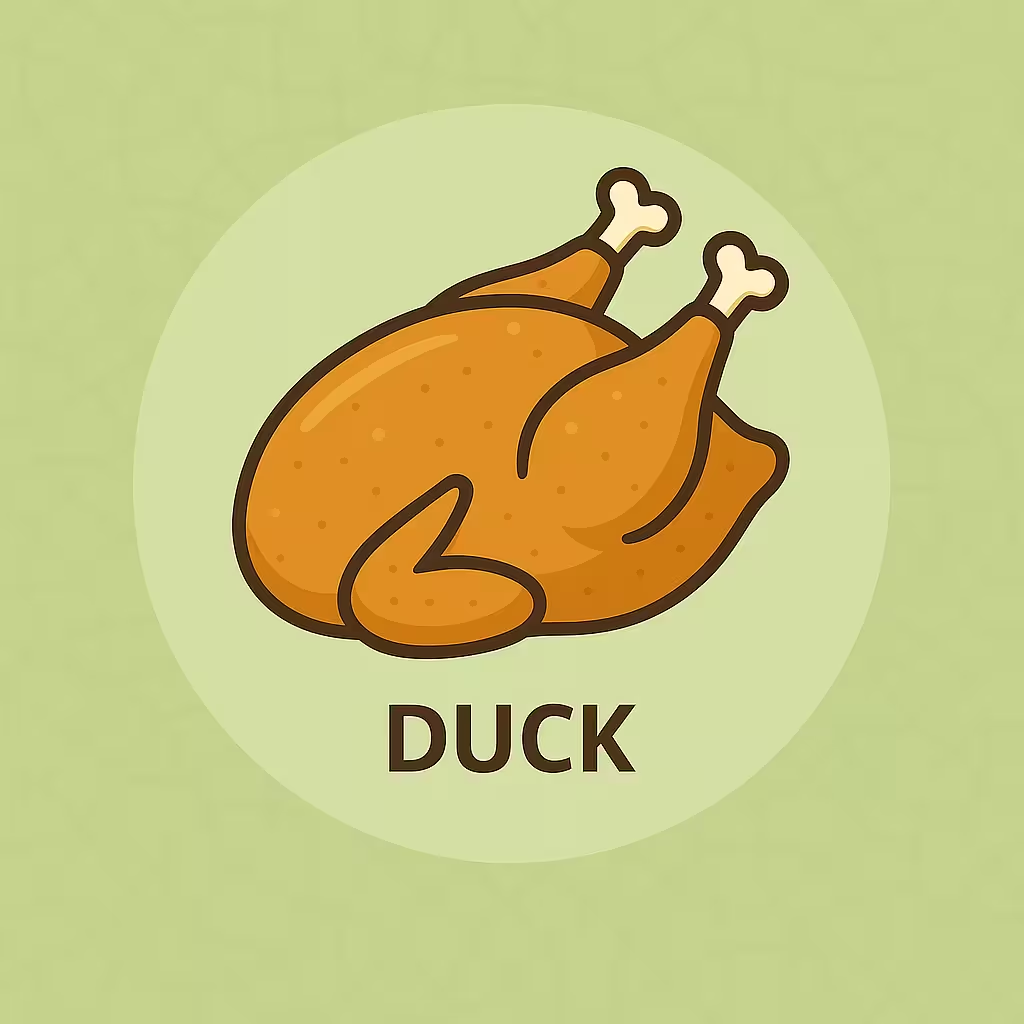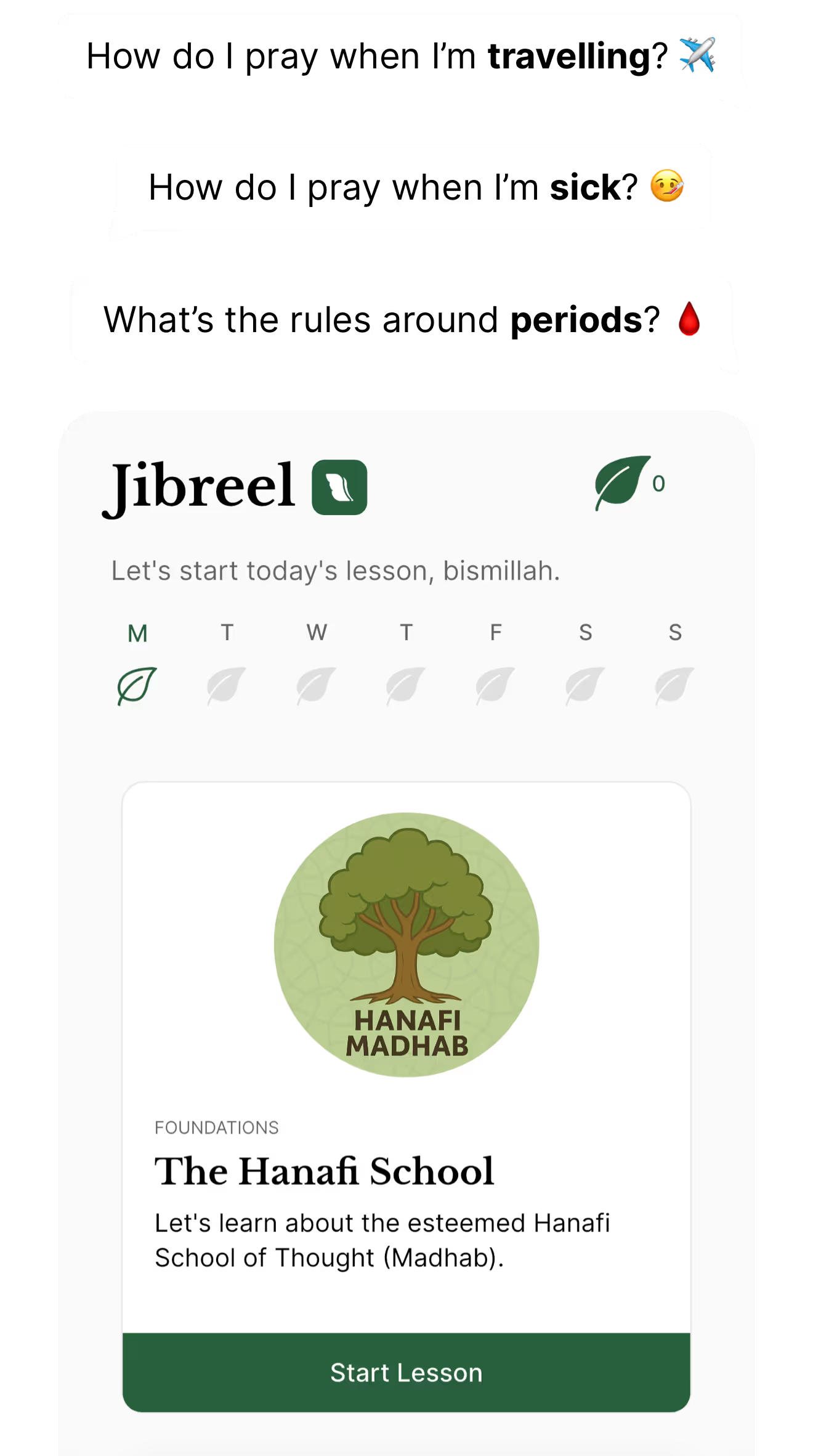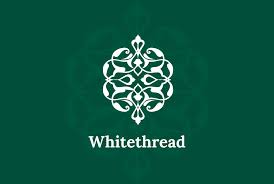Yes – for Muslims following the Hanafi madhab (school of thought), duck is considered halal (permissible) to consume.
This article will explain why duck is halal in the Hanafi school, citing evidence from the Quran, Hadith (Prophetic teachings), and classical Hanafi texts.
Understanding Halal & Haram in Islam (Hanafi Overview)
Each of the four Sunni schools (Hanafi, Shafi’i, Maliki, Hanbali) has principles for determining an animal’s permissibility. Here we focus on the Hanafi principles to understand why duck meat is considered halal.
According to Hanafi jurisprudence, all land animals and birds are halal by default except those specifically deemed haram due to clear evidence.

Carnivorous beasts and birds of prey are forbidden, whereas herbivorous animals and non-predatory birds are allowed.
In other words, Hanafis evaluate birds based on their feeding and hunting behavior. Let’s see how this applies to ducks in particular.
Are Animals with Webbed Feet (e.g. Duck) Halal?
No, the idea that animals with webbed feet are haram is a misconception. The ruling in Hanafi fiqh is clear: ducks are not classified as predatory birds, and thus their meat is halal. In fact, Islamic scholars historically agreed that domestic birds like ducks are permissible to eat.

Why Duck Is Halal in the Hanafi School of Thought
In the Hanafi school, the key criterion for birds is whether they hunt prey with their talons (claws). Any bird that hunts other animals with its claws is considered a bird of prey and is haram (impermissible) to eat.
This ruling is based on a well-known hadith of the Prophet Muhammad ﷺ, in which he forbade the eating of all beasts with fangs and all birds with talons. Predatory birds like eagles, hawks, falcons, and kites fall into this prohibited category.
"Ibn 'Abbas reported that Allah's Messenger (ﷺ) prohibited the eating of all fanged beasts of prey, and all the birds having talons."
Sahih Muslim 1934
By contrast, birds that do not hunt with claws and instead eat grains or vegetation are considered halal in Hanafi fiqh.
Ducks clearly belong to this halal category. Ducks are waterfowl that mostly graze on plants, seeds, and small aquatic creatures, and they do not use talons to catch prey. In fact, ducks have webbed feet, not sharp talons, which means they are not equipped as hunters.
It is akin to chickens, geese, pigeons, and other domestic birds, which are all halal to eat according to the Hanafi school.
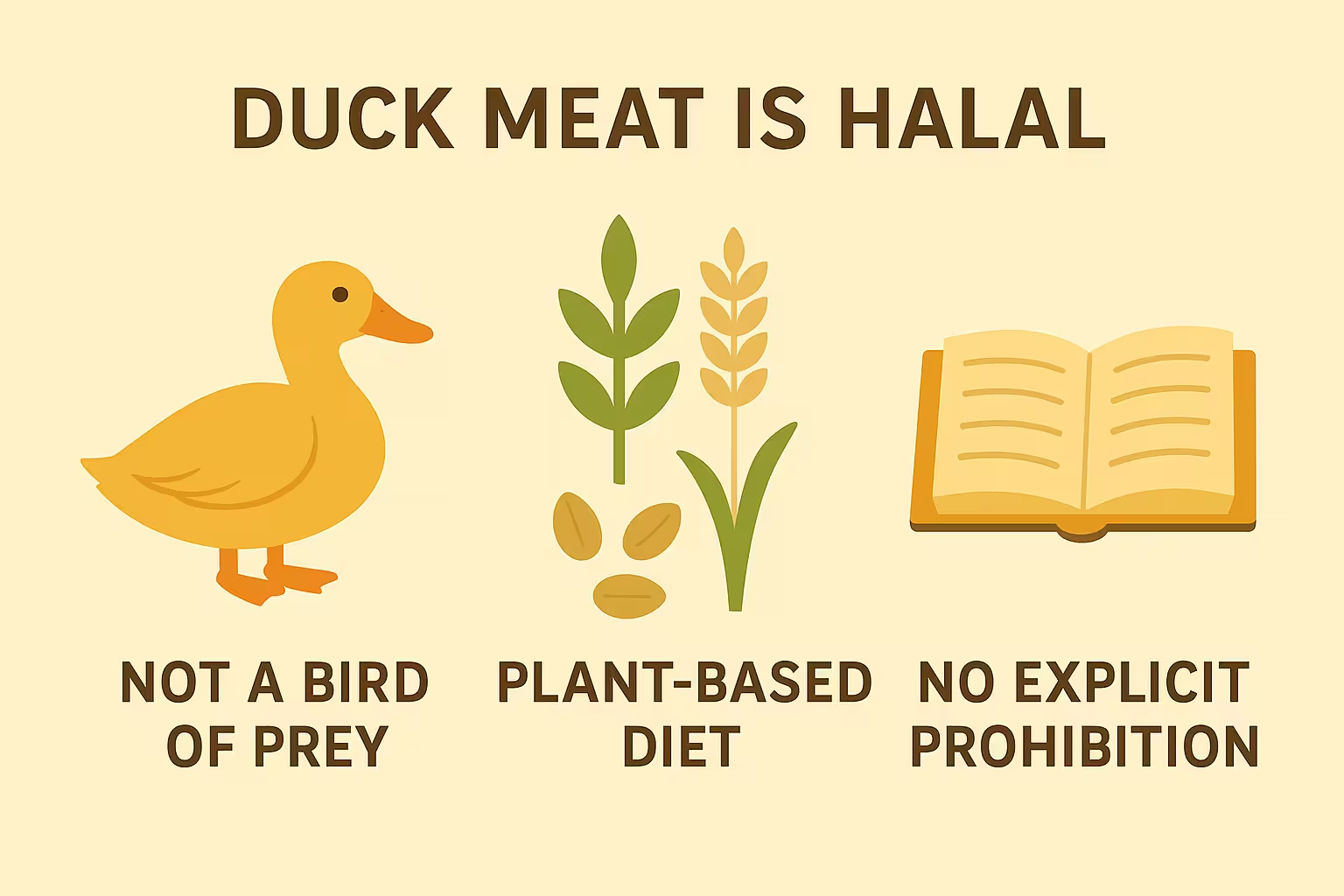
To summarize, Hanafi scholars consider duck meat halal due to several reasons:
- Not a bird of prey: Ducks do not hunt with talons or fangs, so they are not classified as predatory birds (which are haram)
- Plant-based diet: Ducks primarily eat plants, seeds, and small non-flesh items; they aren’t carnivorous hunters, aligning with the Hanafi criteria for halal birds.
- No explicit prohibition: Neither the Quran nor authentic Hadith forbids duck specifically. The hadith only forbids predators (birds with talons), which doesn’t apply to ducks.
Each of the points above reinforces that, within Hanafi Islamic law, duck is halal to eat.
Do Ducks Have to be Slaughtered Halal?
Yes, as with all permissible animals, the duck should be slaughtered according to Islamic law for the meat to be lawful.
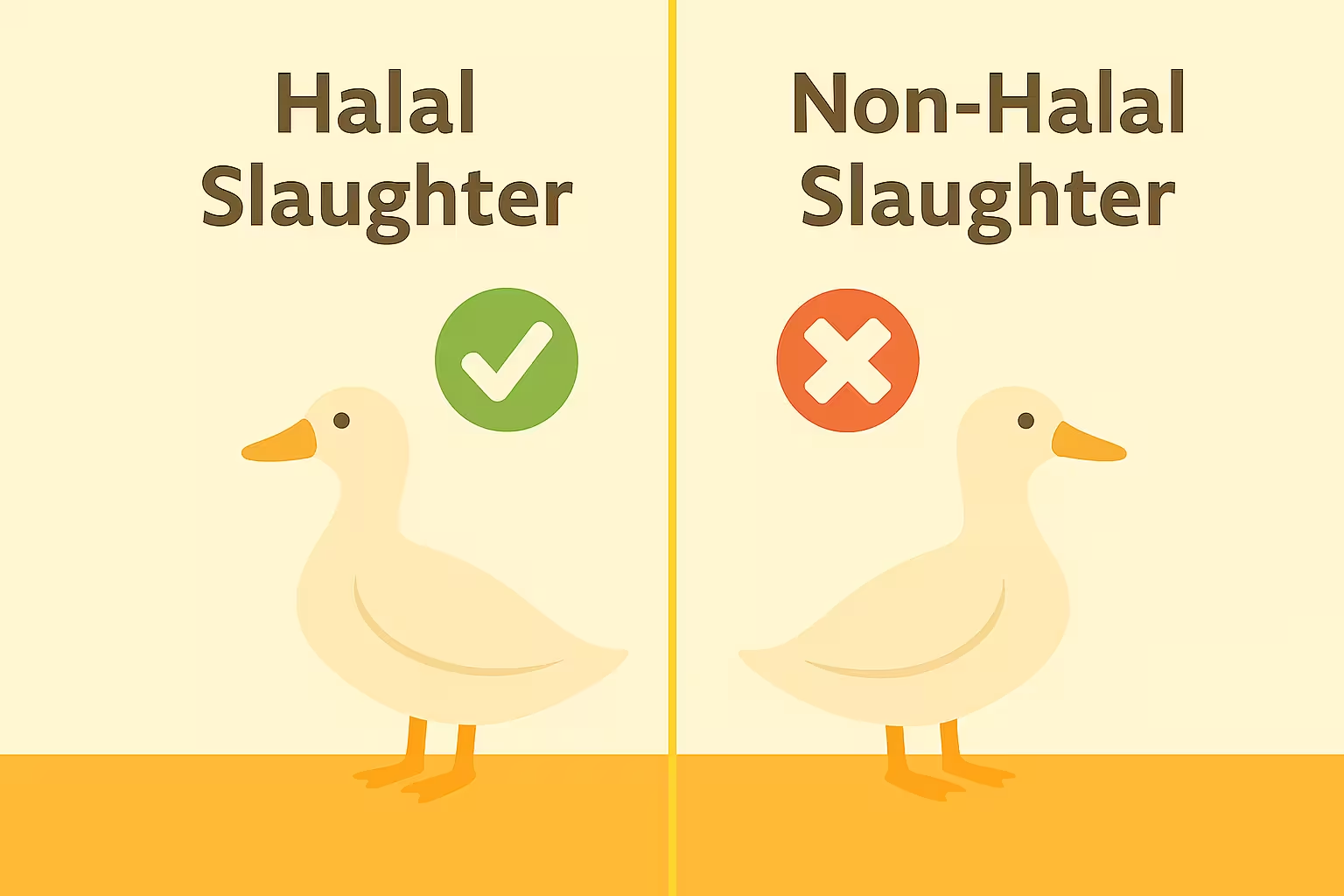
One general note from the jurists: if any normally halal animal (like a duck or chicken) is fed mostly impure filth such that its flesh develops a foul odor, consuming it becomes makruh (disliked).
This is a rare scenario and can be resolved by feeding the animal clean feed for a few days before slaughter. Under normal circumstances, this is not an issue with commercially or farm-raised ducks. So, as long as the duck is raised and slaughtered properly, its meat remains halal and tayyib (pure/good).
Are Other Types of Meat Halal?
Find out if octopus, prawn and squid are halal in our other articles.
Conclusion: Duck Is Halal in Hanafi Fiqh
In conclusion, the Hanafi position is that duck is absolutely halal to eat, without any doubt or hesitation.
This ruling is rooted in the Quran and Hadith-based criteria that prohibit only impure and predatory creatures, not birds like the duck that live on grains and water plants.
For a Muslim concerned about following halal dietary laws, you can enjoy duck meat (e.g. duck curry or roast duck) with confidence that it is permissible, provided it has been slaughtered in the proper Islamic manner.
And Allah knows best.
